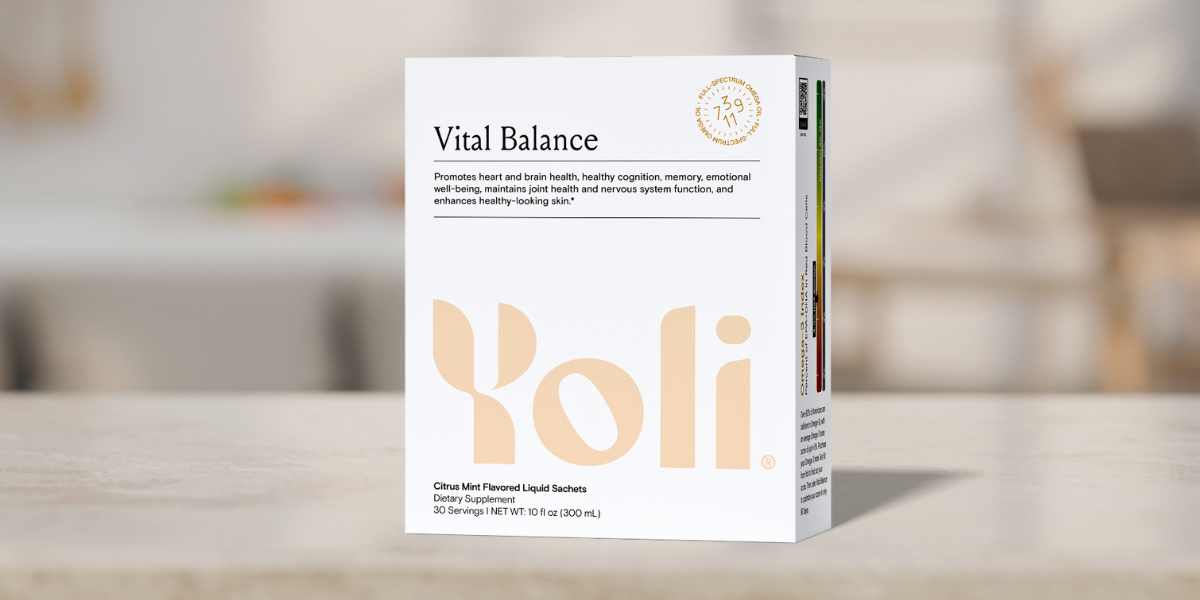For decades, cholesterol screening has been the standard tool for gauging cardiovascular risk. A single number—the LDL count—has shaped prescriptions, diets, and even entire industries. But a growing number of physicians and researchers are questioning whether cholesterol alone is the best predictor of long-term heart health.
An emerging marker, the Omega-3 Index, is gaining attention for its stronger connection to cardiovascular and cognitive outcomes. Unlike cholesterol, which provides a snapshot of blood lipids at a moment in time, the Omega-3 Index reflects long-term dietary patterns and tissue health. That difference is why some doctors are quietly beginning to recommend omega-3 testing alongside, or even ahead of traditional cholesterol screens.
The Limitations of Cholesterol as a Predictor
Cholesterol testing has saved lives, but it has its limits. Results can fluctuate based on stress, fasting status, or even what was eaten the night before. More importantly, cholesterol numbers don’t tell the full story of heart resilience.
A patient might show “normal” cholesterol but still be at increased risk due to other factors, such as chronic inflammation or nutrient deficiencies. This has left both patients and doctors searching for better, more holistic indicators of cardiovascular wellness.
Why the Omega-3 Index Is Different
The Omega-3 Index measures the amount of EPA and DHA—essential omega-3 fatty acids embedded in red blood cell membranes. Research shows that people with an Index between 8% and 12% enjoy significant protection against heart disease, while those below 4% face increased risk. The average American’s score is just 4%.
This emphasis on tissue-level incorporation is what sets omega-3 testing apart. It doesn’t just measure what is floating in the blood at one moment; it measures what the body has actually retained and is using.
Peer-Reviewed Research and Medical Interest
While cholesterol has long been used as a marker for cardiovascular health, researchers have explored the Omega-3 Index as an additional biomarker associated with long-term heart health. Some studies have reported stronger correlations with omega-3 status in certain populations, though more research is ongoing.
As evidence grows, some doctors are quietly advising patients to monitor omega-3 status as part of their preventive care. While cholesterol will likely remain a piece of the puzzle, omega-3 testing adds another layer of insight—one that patients can act on immediately through dietary changes and supplementation.

Empowering Consumers With At-Home Testing
One of the barriers to adopting new health measures is accessibility. That’s where Yoli’s Vitality Test Kit, powered by OmegaQuant, makes a difference. With a simple at-home blood test, individuals can discover their Omega-3 Index, receive a certified laboratory analysis, and get actionable guidance.
If the results show a low Index, Yoli’s nutritional solutions—such as Vital Balance and Vital Omegas+—provide a structured way to raise levels into the optimal 8% to 12% range. Within three to four months of consistent dietary changes or supplementation, levels typically stabilize, allowing patients to retest and confirm progress.
This test-adjust-test cycle empowers individuals to take control of their cardiovascular wellness without relying solely on annual checkups or one-size-fits-all prescriptions.
Real-World Results
Testimonials from those who have used the Omega-3 Index test show consistent themes: greater peace of mind, motivation to follow through on supplementation, and measurable results. For many, seeing their numbers move upward creates a sense of control often missing in traditional cholesterol management.
Final Thoughts
While cholesterol testing is well established, the Omega-3 Index provides additional context about a person’s nutritional status. It helps individuals understand whether their omega-3 levels align with ranges discussed in research related to cardiovascular and cognitive health.
As more physicians recognize the predictive power of omega-3 status, testing is poised to become a quiet revolution in preventive care. For those ready to move beyond guessing, the Yoli Vitality Test Kit offers a practical, research-informed way to assess omega-3 levels—an important biomarker associated with cardiovascular and overall wellness.
Disclaimer: The statements made in this article regarding the product have not been evaluated by the Food and Drug Administration (FDA). This product is not intended to diagnose, treat, cure, or prevent any disease. The information provided is for general informational purposes only and should not be considered as medical advice. Readers should consult with a healthcare professional before making any changes to their diet or wellness routine.









